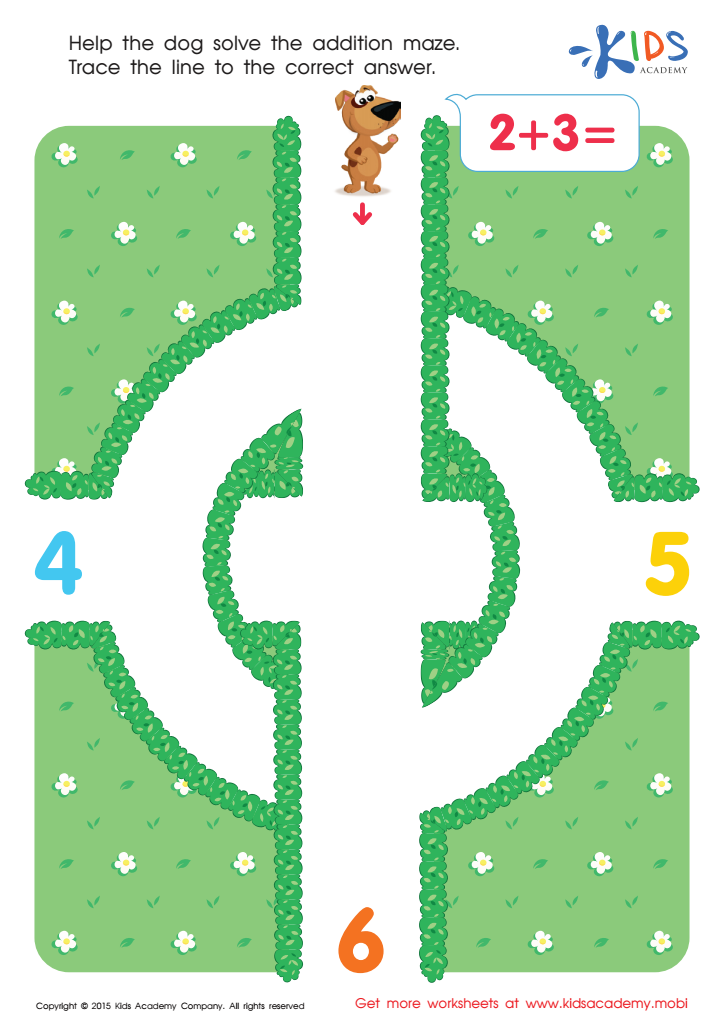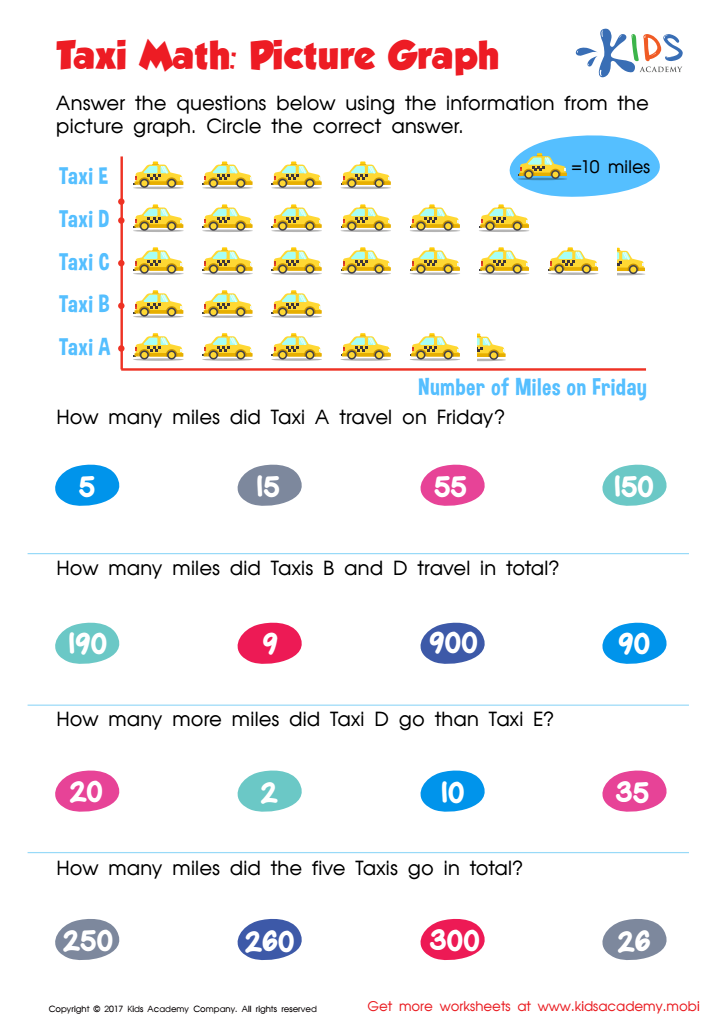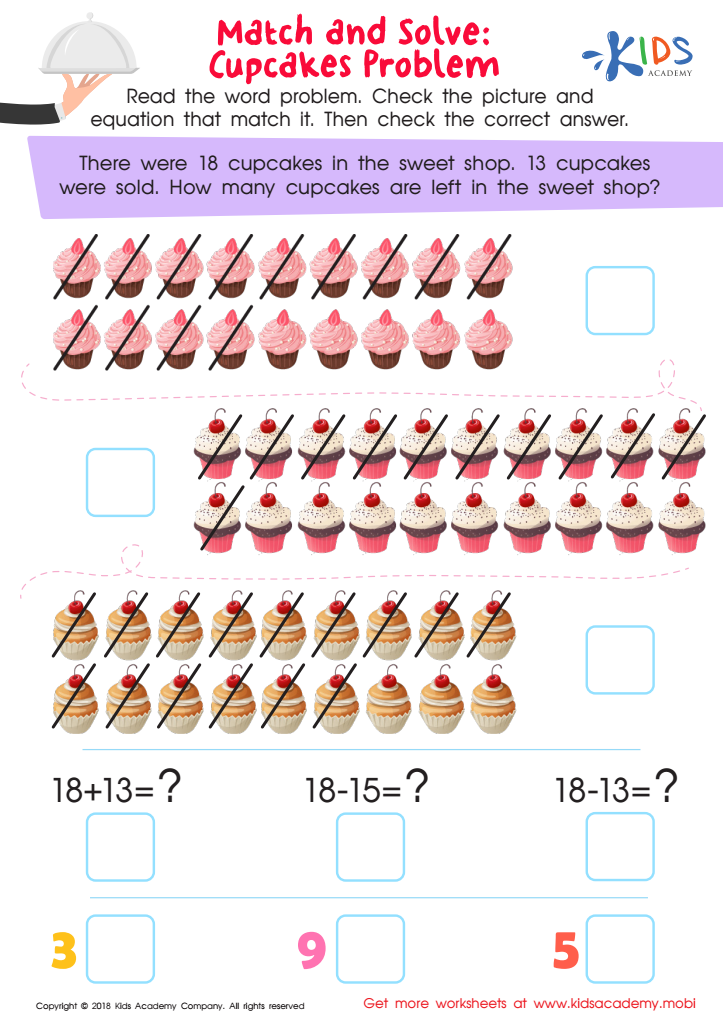Visual Learning Extra Challenge Worksheets for Ages 3-9
3 filtered results
-
From - To
Discover our "Visual Learning Extra Challenge Worksheets for Ages 3-9," designed to enhance visual skills and stimulate cognitive development in young learners. These engaging worksheets offer a variety of fun activities that promote observation, pattern recognition, and problem-solving. Ideal for preschool and early grade school children, our resources are crafted to support different learning styles while keeping students motivated. Each worksheet is visually appealing, tailored to encourage independent thinking and creativity. Perfect for classroom or home use, these extra challenges provide a great way to build essential skills in a playful and interactive manner. Unlock your child's learning potential today!


Two And Three Addition Worksheet


Taxi Math Worksheet


Match and Solve: Cupcakes Problem Worksheet
Visual learning is a powerful tool for children aged 3-9, as it taps into their natural propensity for exploration and imagination. Engaging children in visual learning extra challenges fosters creativity, enhances concentration, and strengthens critical thinking skills. Here’s why parents and teachers should prioritize these activities:
Firstly, children in this age group are naturally curious and visual learners. Implementing engaging visual challenges can stimulate their cognitive development by utilizing colorful, interactive materials that make learning fun. This approach accommodates various learning styles, ensuring every child's needs are met.
Secondly, visual challenges often include activities like puzzles, art projects, and memory games that promote problem-solving and decision-making skills. These activities not only reinforce the concepts children learn in traditional settings but also encourage hands-on experience, making learning more memorable.
Furthermore, participating in visual challenges allows for collaborative learning, where children work together. This fosters important social skills such as teamwork, communication, and empathy.
Ultimately, investing in visual learning extra challenges cultivates a love for learning and lays a strong foundation for academic success, enhancing children’s ability to process information effectively throughout their educational journey. Parents and teachers should recognize this significance and actively integrate these strategies into their teaching and parenting approaches.
 Assign to My Students
Assign to My Students


















